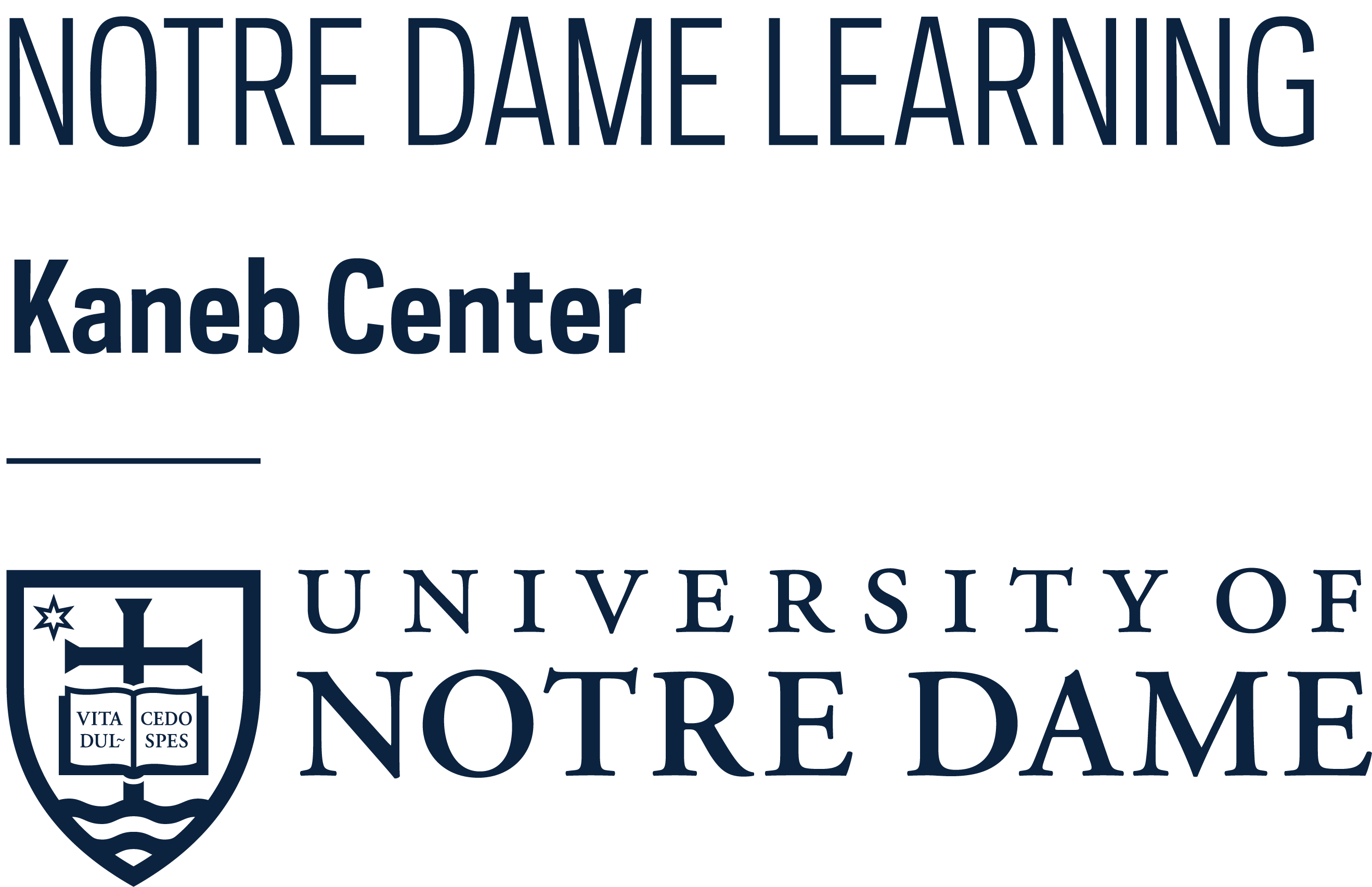In our Faculty Feature series, the Kaneb Center interviews teachers around campus to learn about what motivates them, discuss techniques they use in their classrooms, and share bits of wisdom with others in the Notre Dame community and beyond! This edition, we feature Kasey Buckles from the Department of Economics.
Tell us a little about yourself.
 I am an Associate Professor of Economics, and a Concurrent Faculty Member in the Gender Studies program. I am also affiliated with the Lab for Economic Opportunities. I started at Notre Dame as an assistant professor in 2005; it was my first academic job after finishing my Ph.D. at Boston University. In my research, I study the economics of the family and economic demography, and the courses I most frequently teach are Econometrics and a senior seminar entitled “Economics of the Family.”
I am an Associate Professor of Economics, and a Concurrent Faculty Member in the Gender Studies program. I am also affiliated with the Lab for Economic Opportunities. I started at Notre Dame as an assistant professor in 2005; it was my first academic job after finishing my Ph.D. at Boston University. In my research, I study the economics of the family and economic demography, and the courses I most frequently teach are Econometrics and a senior seminar entitled “Economics of the Family.”
I am originally from Kentucky, and I attended the University of Kentucky as an undergraduate. My husband also works at Notre Dame, in administration, and we have an 8-year old daughter and a 6-year old son. I love living in South Bend and taking advantage of things the area has to offer, like the Farmer’s Market, great minor league baseball, and my beach volleyball league in the summer.
Why did you decide to become a teacher?
I knew I wanted to be a professor before I knew I wanted to be an economist. In many ways I have always felt most at home in school, because I love learning and being surrounded by other teachers and learners. Being an academic seemed like the best way to stay in that environment for my entire career. Teaching was always a big part of the appeal of that vision—I wanted to be able to give others the fantastic classroom experience I’d been lucky enough to have at times.
In what ways do you find teaching rewarding or meaningful?
While I love research, the best “moments” of my academic career come from teaching. The undergraduate classes I teach have a lot of technical or quantitative content, and the students often find it daunting at first. It is a real challenge to help them understand it, but more importantly to help them see why we are doing what we are doing. I meet many people who had terrible experiences with economics classes when they were students, and usually it is because their instructors failed on this second part. I get tremendous satisfaction from that moment when students see that the tools I am giving them can be used to tackle some of the most interesting and important questions in the world today.
Describe one teaching technique you like to use in your classes.
When I assign a reading to the class that is going to be used as a basis for the day’s discussion, I ask the students to submit a 1-2 page “reaction piece” that I will read beforehand. These are very informal, and students are invited to ask questions about things they did not understand, offer critiques, or share a personal experience that relates to the reading. This really helps me to structure the class and discussion. I can spend more time on material that students struggled with, or draw out students who might otherwise be reluctant to share but whom I know had a valuable insight or experience. I make brief comments on their reaction pieces, and sometimes just writing “great idea” or “I’d like to hear more about this” on something they wrote is enough to get them to bring it up in class. Of course, an added benefit to the reaction pieces is it increases the chances that the students actually read the material before class.
What advice would you give to a new teacher?
Truly great teaching must include building good relationships with students. I have been honored to receive some recognition as a good teacher, and while I think I am effective at managing the classroom and conveying material, I believe I’ve mostly earned that recognition by building strong personal connections with my students. For example, I believe that I earn a lot of my best teaching evaluations in office hours. I try not to treat those hours as a nuisance, but really set this time aside for spending quality time with students to help them as individuals. I also always try to treat them respectfully and fairly. The students respond to this and it lays the groundwork for genuine learning. I can be much more demanding as a professor because the students know I care and will be there to support them.
In your opinion, what makes a great teacher?
In addition to what I’ve said above, great teachers are organized and thoughtful when it comes to class preparation, assignment of materials, etc. Too many people overlook this—it’s important not only because it makes the class run smoothly, but it shows the students that you care about them and the course. If the class always seems like an afterthought to you, that attitude will spread to the students.
Thanks, Kasey!
